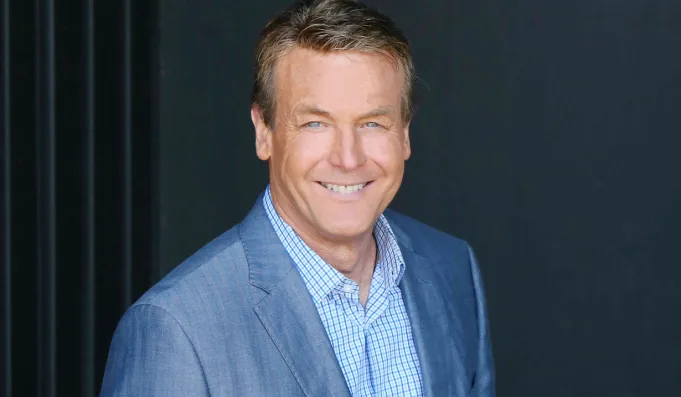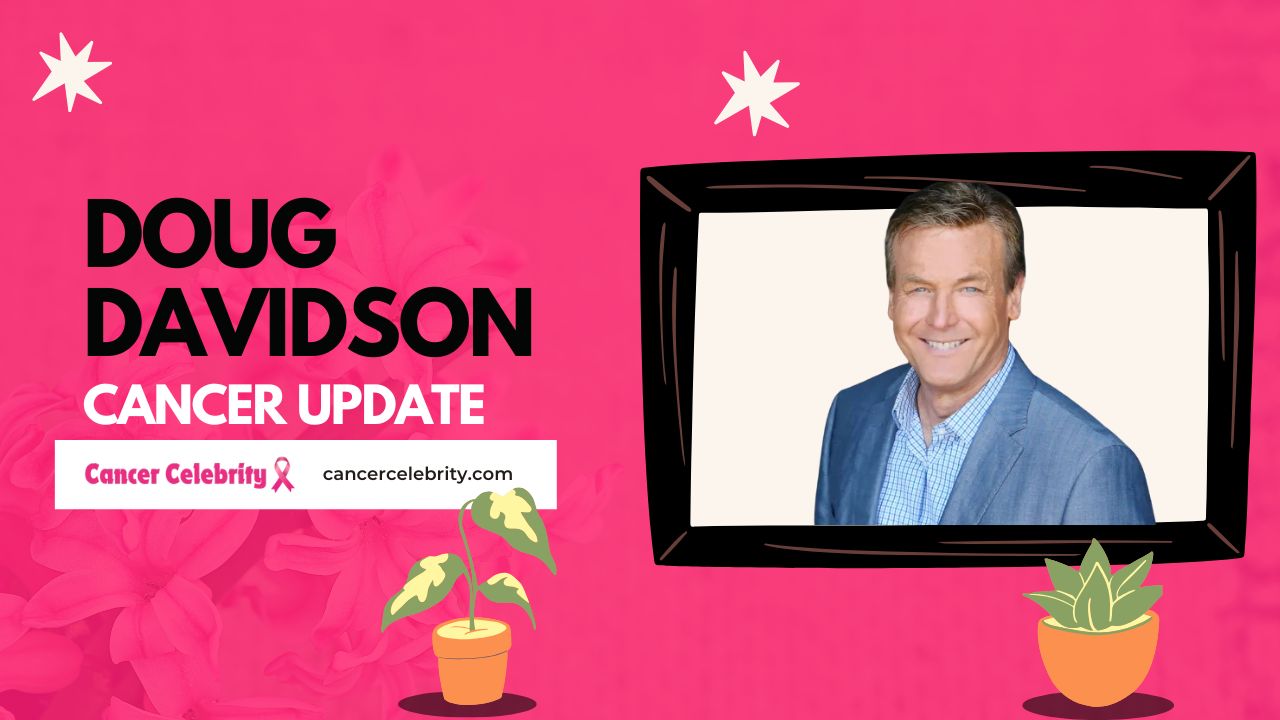In the realm of daytime television, Doug Davidson has etched his name as a beloved fixture through his enduring role on “The Young and the Restless.” With a career spanning over four decades, Davidson’s talent and charm have made him not just a fan favorite but an integral part of the fabric that weaves together the lives of soap opera enthusiasts. However, recent whispers surrounding his health have sparked widespread concern across social media platforms. As rumors swirl regarding whether Doug Davidson has cancer, fans find themselves grappling with fears for his well-being while navigating the often murky waters of celebrity health issues.
While speculation about Davidson’s condition is rife, it’s crucial to approach these evolving narratives with a mix of curiosity and compassion. The relentless nature of such rumors not only affects public interest in celebrity welfare but also bears an emotional toll on celebrities like Davidson who must manage their chronic illnesses publicly if they do exist. In this article, we aim to dissect the facts behind the Doug Davidson health rumors and explore how Kirkland Star’s situation reflects broader implications about accountability in health reporting, transparency in celebrity news, and the impact that unverified information can have on mental health—both for the rumored individual and their devoted fanbase. Join us as we navigate this sensitive topic and uncover what lies beneath the headlines.
Understanding the Doug Davidson’s Cancer Rumors
In recent months, rumors concerning Doug Davidson’s health have captured the attention of fans and gossip enthusiasts alike. The speculation began after Davidson took an extended break from his role on “The Young and the Restless,” leading to concerns about whether he might be facing serious health issues, including cancer. As social media platforms buzzed with questions surrounding “Does Doug Davidson have cancer?” many fans expressed their worries, while others took to outright speculation without solid evidence.
Despite the swirling rumors, there has been no official confirmation regarding any life-threatening diagnosis from Davidson or his representatives. In response to inquiries about his health, Davidson has remained largely private but did share that he was dealing with some personal matters that required his attention. This vagueness only fueled public curiosity as followers eagerly awaited more information about their beloved soap opera star’s well-being—the lack of clear communication allowed misunderstandings and unfounded claims to proliferate online.
Social media plays a significant role in amplifying health rumors in today’s digital landscape. Quick shares, retweets, and viral posts can turn mere whispers into widespread belief in a matter of hours. The rise of user-generated content means anyone can voice their thoughts, often based on limited access to verified information; for example, misinformation surrounding celebrity health has frequently led fans down a rabbit hole of concern and confusion. Understanding this dynamic is crucial when examining how quickly rumors like those about Davidson can take flight and propagate within celebrity culture today.
Ultimately, while fans are entitled to be concerned about the welfare of celebrities they admire, it’s equally important to rely on verified information rather than conjecture or sensationalized reports. As we navigate through such situations—especially those involving public figures like Doug Davidson—it becomes essential to foster a dialogue steeped in compassion while respecting the individual’s privacy during challenging times related to health concerns.
Transparency in Celebrity Health Issues
In the age of social media, the importance of transparency regarding health issues has never been more pronounced for celebrities like Doug Davidson. Fans often feel a personal connection to public figures, making it crucial for these icons to share information about their well-being. When speculation arises—such as rumors around “does Doug Davidson have cancer”—the absence of clear communication can lead to misconceptions and unnecessary panic among his fanbase. Transparency fosters trust, allowing fans to feel included in the journey rather than left in the dark amidst swirling uncertainties.
Determining when and how to communicate health status is undoubtedly a delicate matter for celebrities. They often juggle privacy concerns with public interest, leading many stars to adopt varying approaches based on personal comfort levels. Some choose candid disclosures; for example, singer Selena Gomez openly spoke about her kidney transplant journey, garnering immense support while also raising awareness about lupus. Others might opt for vaguer statements or avoid addressing personal health entirely due to concerns over potential exploitation or misrepresentation by the media. While each celebrity must navigate these waters individually, a genuine narrative can reduce speculation and empower their audience.
Balancing privacy with public interest requires careful consideration from celebrities and their teams. The impact of rumors on mental health cannot be overstated; speculation can take an emotional toll not just on those involved but also on their loved ones. For instance, actress Katie Couric faced intense scrutiny after undergoing colon cancer screening; however, her decision to share this experience eventually contributed positively towards increased awareness around preventive care. Ultimately, while fans are keenly interested in the overall health of celebrities like Doug Davidson, it’s essential for both parties to pinpoint what they’re comfortable sharing without jeopardizing personal space or well-being.
As discussions about celebrity health evolve alongside technological advancements and cultural shifts, so too does the landscape surrounding transparency. Ensuring that accurate narratives prevail avoids misunderstandings related to issues such as “does Doug Davidson have cancer.” In an era where preventative healthcare dialogues flourish from high-profile figures’ stories, cultivating an environment where actors express their realities thoughtfully can help bridge gaps between fan curiosity and respect for personal boundaries—allowing compassion and understanding to thrive amid uncertainty.
Fan Reactions to Doug Davidson Health Rumors

In today’s digital age, the public’s response to celebrity health news spreads like wildfire. When rumors about a star’s well-being emerge—like those concerning Doug Davidson—fans often take to social media platforms like Twitter and Instagram to share their concerns or disbelief. Common reactions often range from heartfelt expressions of support and sympathy to outright skepticism and harsh criticism regarding the celebrity’s alleged condition. Fans grapple with conflicting emotions: wanting to express care but, at times, struggling with how to articulate it sensitively amidst rampant speculations.
The dynamics of fan bases can significantly influence these reactions. For example, when beloved actor Chadwick Boseman was diagnosed with colon cancer, his fans rallied with a wave of emotional support and admiration for his strength as he kept his illness largely private until his passing in 2020. The outpouring of love highlighted how a supportive community could uplift an individual facing severe health challenges. Conversely, some universes—particularly those surrounding reality television personalities—can breed toxic environments where vicious speculation runs rampant, exacerbating distress for the subject in question. In such cases, incidents often lead to feelings of betrayal among fans who struggle between their idol’s public persona and private struggles.
Supportive fan reactions can serve as powerful reminders that everyone deserves compassion—especially during vulnerable moments. A prime example is actress Selma Blair discussing her battle with multiple sclerosis; her openness garnered strong positive responses from fans who shared their own experiences and expressed gratitude for her candidness. This exchange not only strengthened her connection with audiences but also helped raise awareness about chronic illnesses—a vital cause needing more visibility.
Contrastingly, negative fan behavior can inflict emotional tolls on celebrities already under duress due to illness. Celebrities have reported feeling demoralized by some fans’ insensitive remarks or accusatory comments doubting their health truths or chastising them for any perceived lack of transparency. These mixed reactions underscore the delicate balance between public interest in a celebrity’s life and respect for their right to keep certain aspects private while navigating personal crises that are inherently complex and challenging.
Accountability in Health Reporting
In the age of instant information, maintaining journalistic standards when reporting on health issues—especially concerning celebrities like Doug Davidson—is more crucial than ever. The excitement and intrigue surrounding public figures often lead to sensationalized narratives that lack substantiation. Reports questioning “does Doug Davidson have cancer?” may spread rapidly without comprehensive verification. Journalists have a moral responsibility to dig deeper and provide evidence-backed information rather than succumbing to gossip-driven motives that could misrepresent a celebrity’s situation.
Furthermore, misinformation in tabloid journalism can have devastating consequences not only for the individuals involved but also for their fans. Take, for example, the case of actor Chris Pratt, who faced unfounded rumors about his health leading to widespread fan anxiety. Such falsehoods can result in emotional distress and unnecessary worry among fans, as they form speculative theories around the subject’s well-being based solely on unverified reports. Consequently, it is incumbent upon media outlets to uphold rigorous fact-checking processes before publishing articles related to celebrities’ health.
Another significant aspect involves the impact this misinformation has on mental health, both for celebrities navigating these spearheaded rumors and their audience identifying with them. When topics like cancer enter public discourse through inaccurate reporting or wild speculations, especially regarding someone as beloved as Doug Davidson, it not only diminishes trust between celebrities and their fans but also exacerbates the emotional toll of living with chronic illness publicly. Accurate representation should be prioritized by all platforms dealing with sensitive subjects like health issues; failure to do so risks contributing to stigma and misunderstanding surrounding medical conditions.
Ultimately, accountability in health reporting emphasizes the need for responsible journalism—a practice that fosters transparency while counteracting sensationalism. By doing so, media outlets can help cultivate an informed audience capable of engaging thoughtfully with the realities surrounding celebrity health challenges. As we navigate rumors about figures like Doug Davidson, striving for accuracy ensures that discussions remain respectful and reflective of genuine concern rather than mere speculation driven by entertainment value.
Health Conversations Among Celebrities: The Broader Impact
As rumors swirl around whether Doug Davidson has cancer, it’s essential to recognize how celebrity health discussions can spark larger conversations about well-being and preventive care. Notable figures like Selena Gomez and Michael Douglas have bravely shared their own health experiences, shedding light on diseases that often remain in the shadows. By fostering open dialogue, celebrities hold the power to not only increase public awareness of specific illnesses but also encourage fans to engage in proactive health management.
While navigating the complexities of managing chronic illness publicly can be daunting for any celebrity, transparency—even amid unfounded rumors like those surrounding Doug Davidson—can lead to impactful healthcare discourse. As fans and the general public continue to express their concern for celebrity welfare, it’s crucial that we promote responsible reporting and empathetic engagement over speculation. This approach ultimately contributes to a healthier community relationship with both public figures and health matters at large.

